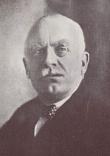Born: Established: 4 Oct 1858 London,
c
England,c
c
United Kingdom (UK),c
Western Europe,
Europe,
;
Died:
Ceased:
10 Oct 1943
Coogee,
Randwick area,
Sydney Eastern Suburbs,
Sydney,
New South Wales,
Gender:
Male
Arrived in Australia:
ca.
1890

